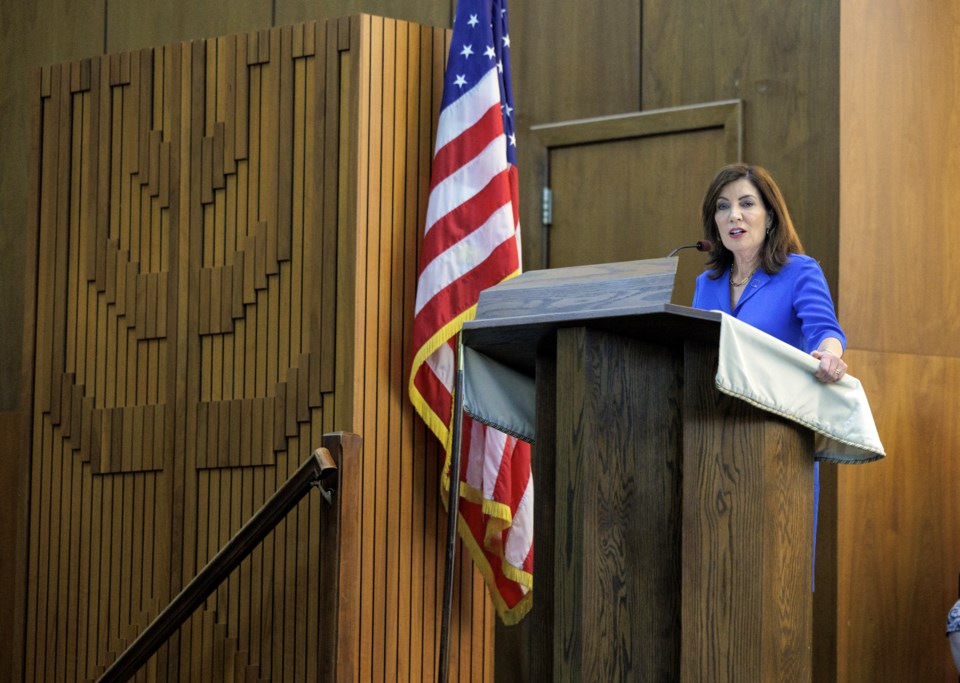Governor Kathy Hochul on March 19 launched a new web portal providing New Yorkers with access to vaccines and essential public health information in response to the reported measles cases in the state.
Hochul, alongside State Health Commissioner Dr. James McDonald, urged the public to ensure they are up to date on all recommended immunizations, according to a press release.
Although the risk remained low in New York, immunizations would help prevent further spread, the governor said. There are four reported cases in New York State so far this year, with three cases in New York City and one in Suffolk County.
The cases are not related to each other or connected to the ongoing outbreaks in Texas and New Mexico.
“Measles doesn’t belong in the 21st century, and it certainly doesn’t belong in the State of New York,” Hochul said. “As measles outbreaks occur at home and around the globe, it’s critical that New Yorkers take the necessary steps to get vaccinated, get educated and stave off the spread of this preventable disease — the safety of our communities depends on it.”
According to immunization registry data, the current vaccination rate for babies up to two years old (excluding New York City) stands at 81.4%, meaning that roughly 81% of children have received at least one dose of the MMR vaccine. However, vaccination coverage among school-age children is typically around 90%.
The New York State Department of Health is closely monitoring the situation and notifying the Centers for Disease Control and Prevention (CDC) of any developments.
Commissioner McDonald emphasized the importance of vaccination.
“The single way to prevent measles is to be immunized, and this is an irrefutable fact," he said. "Measles is much more than just a rash. In the current outbreak in the United States, one in five people are being admitted to a hospital. I urge all New Yorkers to ensure they are current on their measles-mumps-rubella (MMR) immunizations and immediately get vaccinated if they are not.”
State health officials recommend that individuals receive two doses of the MMR vaccine to be fully protected. Those unsure of their immunization status should contact their local health department or healthcare provider. Individuals born before 1957 are likely immune to measles, as they were likely exposed to the virus. Those born between 1957 and 1971 are advised to check with their doctor to confirm their vaccination status, as vaccines administered during that period may not have been reliable.
Travelers, especially those heading abroad, are also urged to ensure they are vaccinated for measles. Babies as young as 6 months can receive an MMR vaccine if traveling internationally. It is important for babies to follow the regular vaccination schedule, receiving a total of three MMR doses.
Measles is spread through the air via coughing or sneezing and can be contracted by breathing in the virus or touching a contaminated surface. People exposed to measles should quarantine for up to 21 days after exposure, and those who test positive should isolate until four days after the rash appears.
Symptoms of measles typically develop 7 to 14 days after infection and include high fever, cough, runny nose and red, watery eyes.




